Exclusive dictation! After the rainstorm "big shift", the doctor of Zhengda First Affiliated Hospital exposed the details of the rescue.
Cctv news(Reporter Wang Jingyuan): "I ran up and down from the 27th floor for more than 20 times that day. After transporting all patients, the whole body aches … … After all the patients were transferred on the 22 nd, the old hospital area, which was built in 1993, stopped for the first time in peacetime because of natural disasters. "
The First Affiliated Hospital of Zhengzhou University is the largest public hospital in China, in which Hehe Hospital District is called "the largest hospital in Asia". The courtyard river hospital area is located next to the Heyi overpass in Erqi District, Zhengzhou, and adjacent to Jinshui River, the main river in Zhengzhou. Because of its low terrain, it is one of the hardest hit areas of the rainstorm in Zhengzhou.
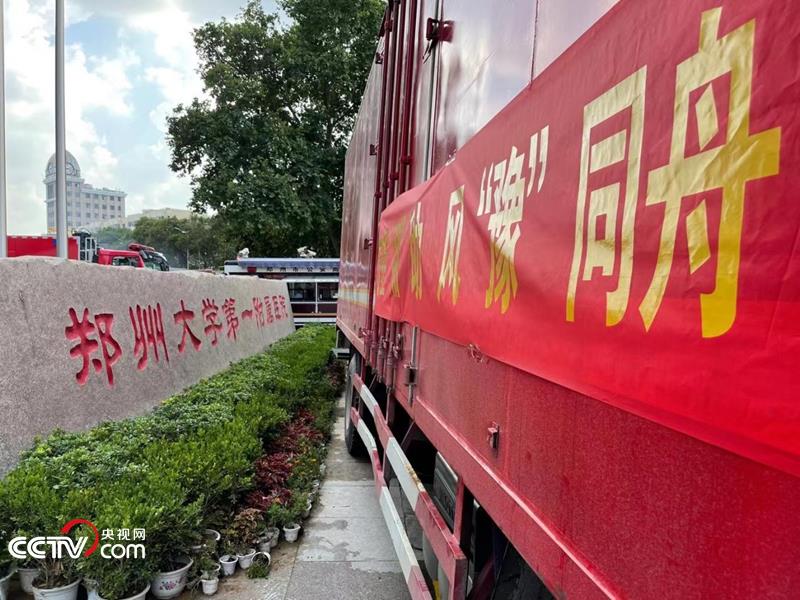
On July 24th, the First Affiliated Hospital of Zhengzhou University. Photo courtesy of respondents
On the evening of July 20th, the river hospital area of Zhengda First Affiliated Hospital was completely cut off, and dozens of operations were forced to be interrupted. At the same time, the hospital also faces the risks of water, net, medicine and grain cut-off. A "big shift in the rainstorm" began to race against time! Under the coordination of Henan Provincial Health and Health Commission and other departments, from 9: 30 pm on July 21st to about 6: 30 am on July 22nd, 11,350 patients in the hospital area were safely transferred. On July 26th, outpatient service, emergency service and fever clinic in Hehe Hospital District resumed work in an all-round way.
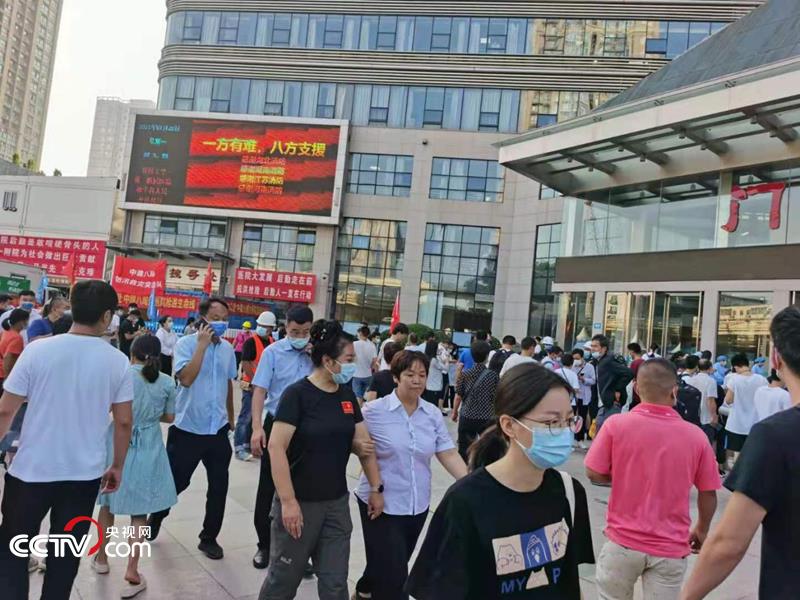
On July 26, Zheng Dayi Affiliated Hospital officially visited the hospital area. Photo courtesy of the interviewee.
What have doctors and patients experienced in the past week? How did the hospital transfer tens of thousands of patients in one day? How did they save themselves in the 120 hours after stopping the clinic?
"It’s really hard. I never thought this kind of scene would happen to me." Dong Xinhua, a gastrointestinal surgeon from the First Affiliated Hospital of Zhengzhou University, told CCTV reporters about his experience in the past few days.
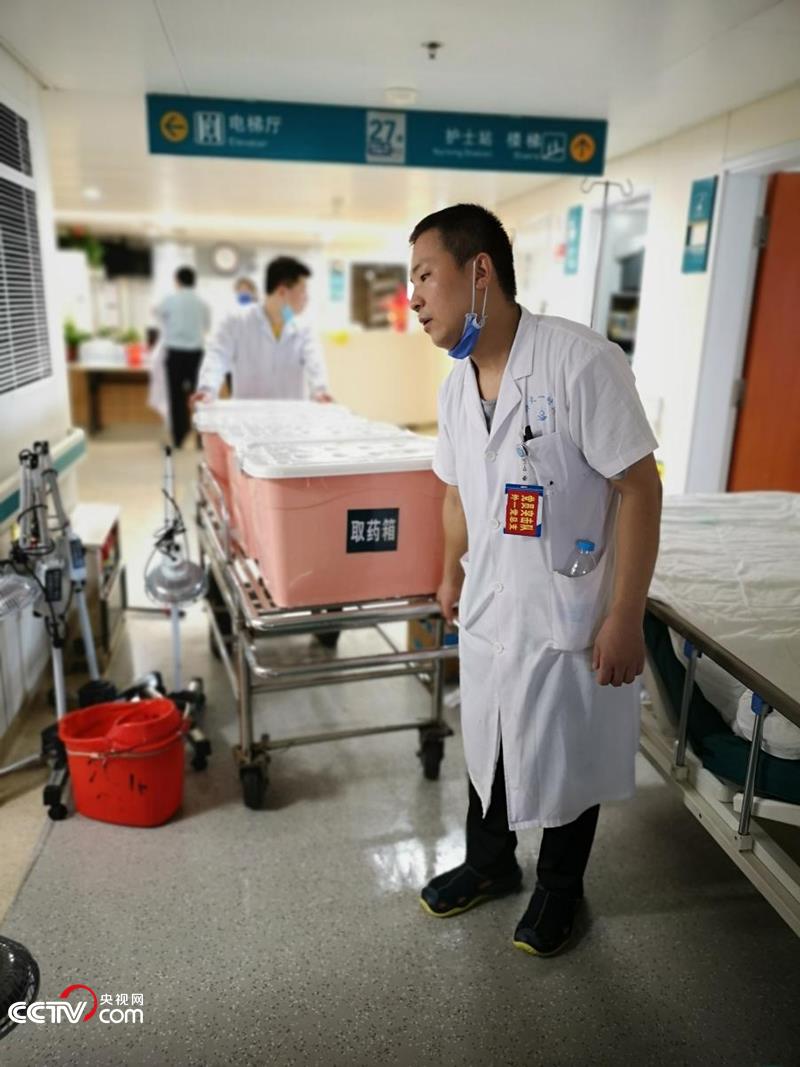
On July 24th, Dr. Dong Xinhua participated in the emergency repair in the hospital area where the clinic stopped. Photo courtesy of respondents
The following is his self-report:
I didn’t have surgery on the day of the rainstorm on the 20th, and I was at home at noon. However, because I had to have surgery the next day, I had to tell the patients about my illness in advance and communicate with my family members to get them to sign. At about 3 pm, I left home for the hospital. My wife asked me to take a big umbrella to avoid being caught in the rain. At that time, it was already raining heavily. When I walked to the door of the community, the water had reached my knees.
Because the water was too deep, I had to walk along the steps of the street shops. I saw a broken down car on the road. I took a small video and sent it to my wife, telling her that the umbrella was useless at all. I am from Zhoukou. I have been working in Zhengzhou for more than ten years and have never experienced such a heavy rain.
The rain rose very fast. When I got to the hospital, the water had reached my waist. I could feel bicycles and electric cars lying on the ground under the water, because my legs kept bumping. It usually takes about six or seven minutes to walk from my home to the hospital. Although I walked a little slower than usual that day, it was only ten minutes at most, and the water in the middle rose by dozens of centimeters.
Our department is on the 27th floor of Building No.2. I just entered Building No.2 and found a security guard pulling a cordon in front of the elevator on the first floor. I feel very strange. There are so many emergency operations in the hospital every day. How can the elevator not be used? I guessed that there was a circuit failure somewhere, and I thought that it might be restored in a while. Later, the cleaning elder sister told me not to wait, so I had to climb to the 27th floor.
I went to work in shorts that afternoon, and our professor said what a doctor looked like in shorts after seeing it. At that time, we all thought it was just a heavy rain, but we didn’t expect water and electricity to be cut off, let alone a disaster.
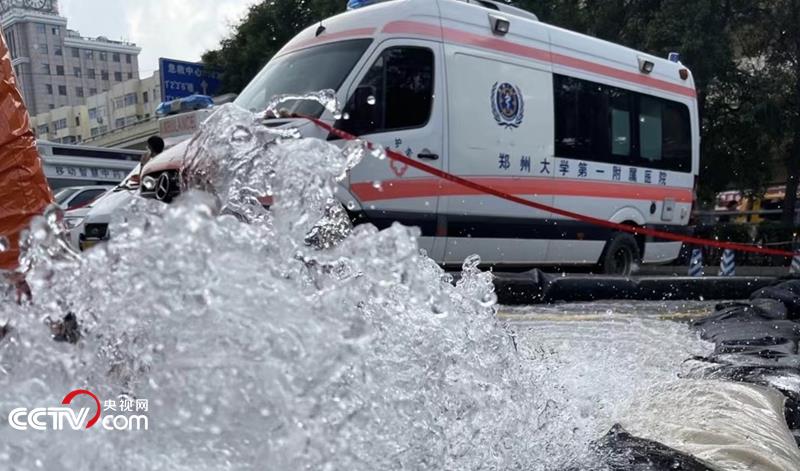
On July 24th, in front of the Affiliated Hospital of Zheng Dayi. Photo courtesy of respondents
At about 5 o’clock, I was discussing tomorrow’s operation with my colleagues, and suddenly the power went out. I have been in the hospital for more than ten years, and there has never been a large-scale power outage. Before, the power outage would not exceed one minute. At that time, the professor was in the clinic. I called him to ask him if he would have surgery tomorrow, but the signal was very poor. I sent him another text message, and he replied that he would wait for the hospital to arrange it.
At about 6 o’clock, we decided to make rounds first. At that point, it was still bright outside and the ward was dark, but we could still see clearly who the patients were in each bed. However, when the nurse changed the liquid for the patient, someone had to use a mobile phone to light it. Because of the standby power supply, the ECG monitor can still be used, and there is no problem for critically ill patients. There are more than 130 patients in our department and more than 50 patients in our group. After checking, we found that everyone was in a stable state, and everyone thought it was a heavy rain.
Recently, my mother was hospitalized in our hospital because of lumbar problems. She was supposed to have an operation on the 20th, but the operation was postponed after the power was cut off. That night, I went to the ward to see her. When I came out, I met my colleagues on the eighth floor. They were carrying a patient who had just left the operating room back to the ward and called me to give him a hand. We took turns carrying the patients to the 19th floor. On the way, I heard them say that this operation was all done with a flashlight.
After I moved the patient, I was all sweaty. Because I couldn’t take a bath without water, I stood by the window and wanted to blow the wind. I saw that the water in the north gate of the hospital had not passed the roof. Just then, there was a signal. As soon as I swiped the message, I saw the first picture of asking for help on the Internet, and I realized that the lobby on the first floor of Building 3 was flooded like that.
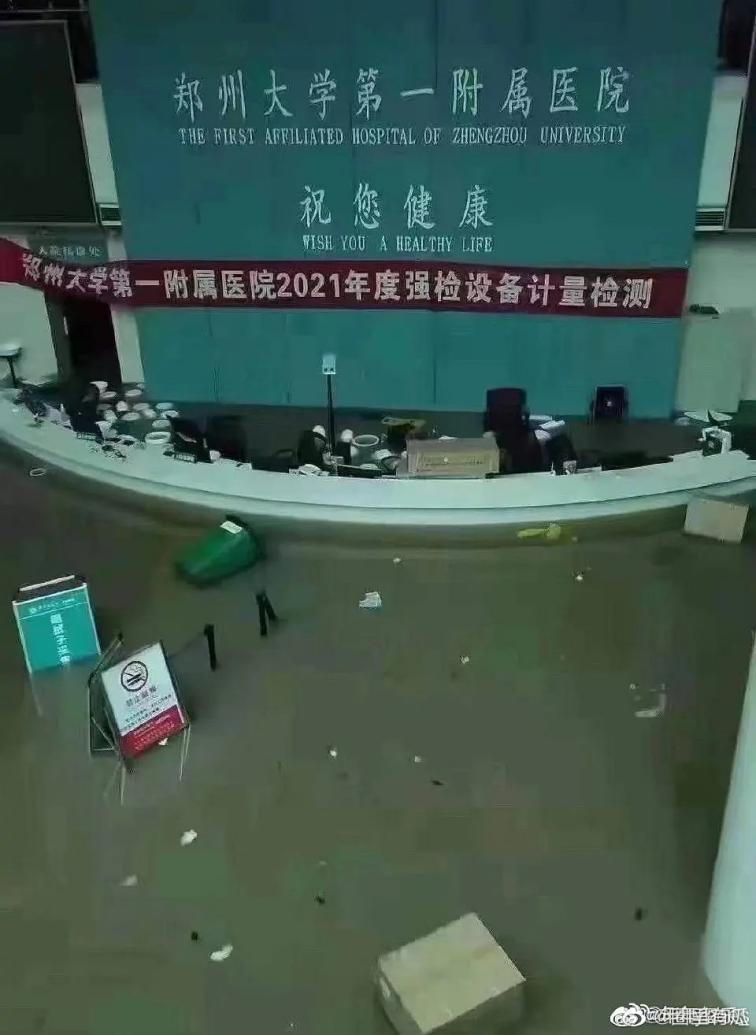
On July 20, a large area of water flooded into the river hospital area of Zhengda First Affiliated Hospital. Tuyuan network
At 10 o’clock in the evening, my old classmate in Tianjin sent me a short message. He said, "I have been engaged in flood control for 8 years, but the precipitation of 200 mm an hour in Zhengzhou is really shocking." Then he called me to ask me if I was okay, but it was broken without saying a few words. Because the rain was too heavy, my colleagues and I stayed in the hospital that night, and a dozen people spent the night in the duty room with mattresses, bedding and folding chairs.
When there was still no electricity on the morning of the 21st, we found the trouble. One of the characteristics of gastrointestinal surgery is that patients can’t eat immediately after surgery, and they have to rely on infusion to supplement nutrition. Usually we go to the pharmacy on the first floor to get liquid every morning, but there was no electricity and no internet at that time, so we didn’t know what was going on in the pharmacy downstairs.
Because of the power failure, the computer system was also paralyzed, so we had to count the liquids needed by patients for infusion today one by one. The elevator didn’t work, so we divided it into three groups and went downstairs from the escalator to get it. Big bags of liquids such as Calvin’s nutrient solution and fat milk amino acid glucose, each bag is 1400 ml, which is almost three kilograms. Just this big bag has moved more than 50 bags. In order to carry the patient’s nutrient solution, I ran back and forth three or four times on the 27th floor.
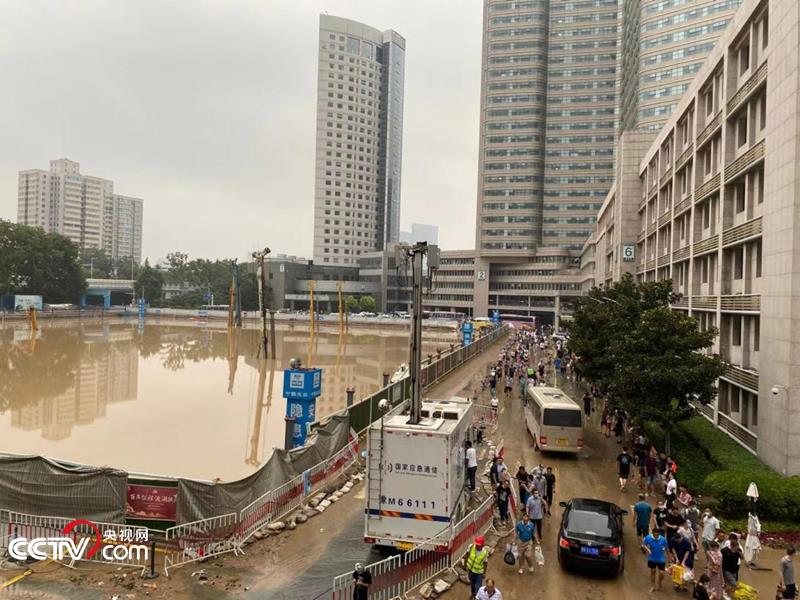
On July 21, the river hospital area was being repaired by drainage. Photo courtesy of respondents
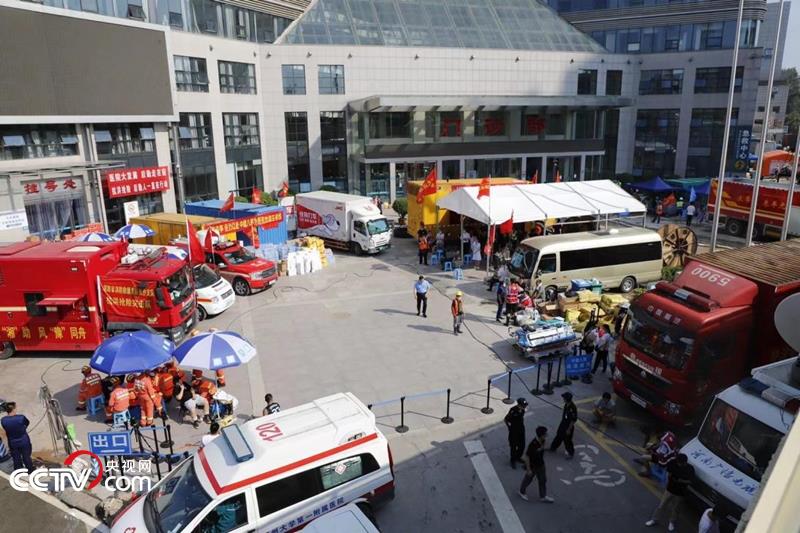
On July 24, all walks of life rushed to help, and the river hospital area gradually restored order.
If the computer system is normal, the information of patients and nutrient solution can be directly printed with QR code. But because there is no electricity, we have to hand-write labels and then put them on the patients one by one. After a while, I heard the director and the head nurse say that it was possible to transfer patients. At that time, I thought how it was possible. After all, there are so many patients and their families. Fortunately, our hospital has three campuses and more beds.
According to the arrangement of the hospital, the patients were divided into three groups according to the severity of their illness. The critically ill and ICU patients were transported by ambulance to the East Hospital where the disaster was less severe; Ordinary patients who need to continue treatment, accompanied by their families, are arranged by the hospital to be transported by bus to other two hospitals or neighboring brother hospitals; Ordinary patients who meet the discharge conditions will be accompanied by their families to temporarily go home to recuperate or return to the local area for further treatment.
Because there is no signal on the mobile phone and I can’t get in touch with other hospitals, I have to write down a phone number and tell the patient, "Go to him directly when you arrive, and tell him that I sent you here, so that he must help." The patient really has no time to delay. In this way, we talked with patients one by one, and it took more than two hours to do this work alone.
After the computer system is down, it is impossible to discharge the patient, so we can only write down the patient’s name, hospitalization number, ID number and contact phone number for the patient to sign. Then on the morning of the 22nd, we called these patients one by one to check whether they got home safely and were transferred to hospital smoothly.
In fact, we all talk to patients after evaluating their specific conditions and making sure that their bodies will not have problems during transshipment. However, some patients don’t understand and think that they have to remove the thread before they can leave the hospital. Although the information on the 21 ST Internet was overwhelming, there was no Internet at that time, and patients could not receive external information. Why do they think we should be discharged from the hospital in a hurry after a heavy rain? A patient didn’t know about the disaster in Zhengzhou until he came home on the 23rd. He also sent me a short message saying thank you, doctor.
On the morning of 21st, when I was making rounds, I saw from the window that there were ambulances and buses pulling patients in front of the hospital. Regarding the transfer of patients, the hospital leaders have arrangements for each department and floor, and it is our turn to be 5 pm on the 21st. During the transshipment, all the staff in our department arrived without being on duty, and the families of our medical staff and some social volunteers also came to help, driving private cars to transport patients, delivering meals to medical staff and helping to carry stretchers.
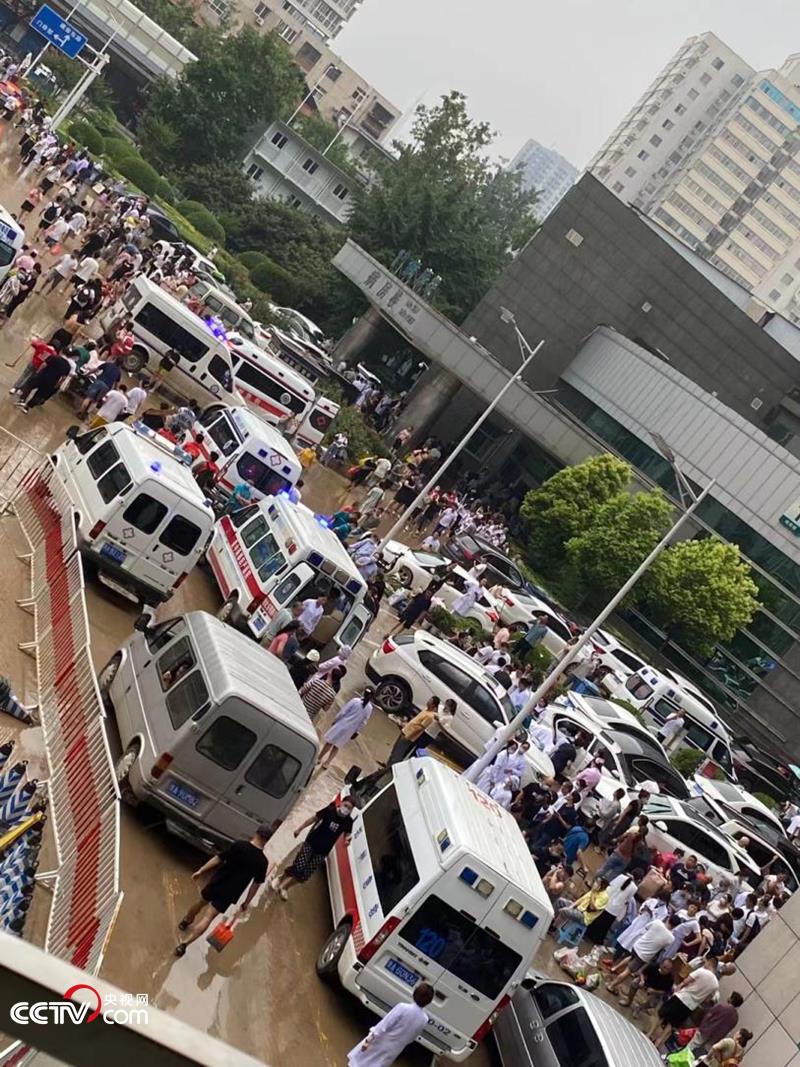
On July 21, buses and private cars that heard the news joined the transshipment team. Photo courtesy of respondents
After operation, patients in gastrointestinal surgery have an incision in the abdomen, so they can’t carry it back, mainly by wheelchair and stretcher. When carrying the stretcher downstairs, try to keep the patient lying flat. The front two people hold the handrail, and the back two people must bend down to reduce the height of the stretcher. At that time, there were stairs going upstairs and downstairs, and it was inconvenient to turn around with a stretcher, so I accidentally bumped into a wall or railing at the corner.
Moreover, the road is very slippery. From the fourth floor down, the ground is covered with rain and sludge, especially after dark at night, and it is easy to fall if you are not careful. So we are all carried by four people, and then there are two more people in front, holding the stretcher with their hands and exploring the road with flashlights.
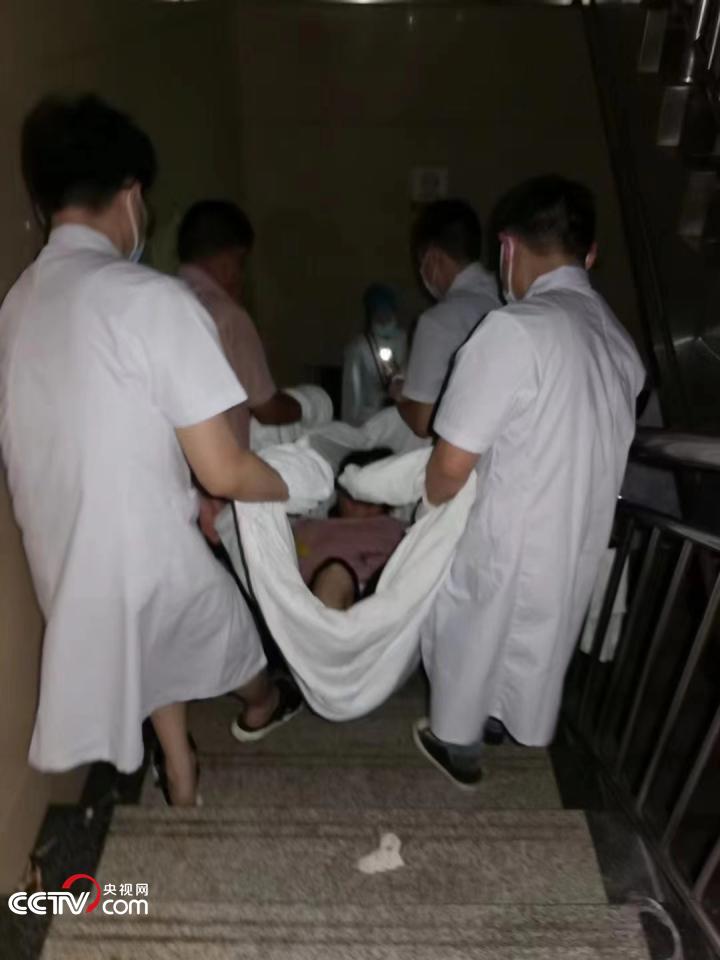
On the evening of July 21, the doctors in the hospital area used flashlights to urgently transport patients with bedding. Photo courtesy of respondents
Later, I saw from my circle of friends that there were others carried down by bedding. Four people were dragging four quilt corners. Because the bedding couldn’t support it, two people had to hold it in the middle to prevent diseases and bumps. Some ICU patients need to breathe oxygen, and someone has to carry the oxygen tank when carrying the patients.
That day, I ran up and down from the 27th floor for more than 20 times. After transporting all the patients, the whole body aches. You think it’s exhausting just to climb 27 flights of stairs, not to mention carrying the patients with stretchers and wheelchairs. It’s really exhausting.
The last patient in our department was transported after 1 am on the 22nd, when most patients were transported. Just as all of us were standing under Building 2, waiting for the ambulance, suddenly it started to rain again. I never thought this kind of scene would happen to me.
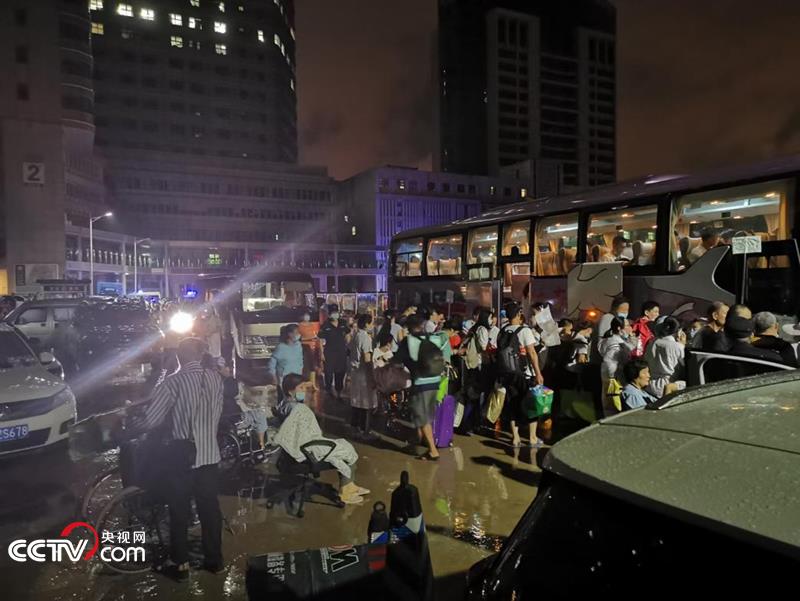
In the early morning of July 22, the "great shift" was still going on against time. Photo courtesy of respondents
Fire-fighting and rescue vehicles, communication support vehicles, diesel power generation equipment and engineering rescue vehicles are crowded with the passages of the hospital. The leaders of the hospital are all coordinating the situation of various departments at the scene, and the sound of their walkie-talkies has never stopped. Our dean was soaked to the skin and his glasses were wet. He directly wiped the water off the lenses with his hands. I will always remember this scene. I’m not flattering. There are more than 10 thousand employees in our hospital, and the dean may not even know who I am. I felt it was too difficult for everyone from the bottom of my heart.
What impressed me most was that at 9 o’clock in the evening on the 21st, I saw a child crying downstairs. The mother of the child was holding the child and coaxed him not to cry. I was also a father. I was wondering where the child could go at night. I sent a message to my daughter-in-law about this scene, and suddenly I burst into tears. Later, when I got home in the early morning, I brushed my circle of friends and saw the pictures sent by my colleagues, and my tears came down again in an instant.
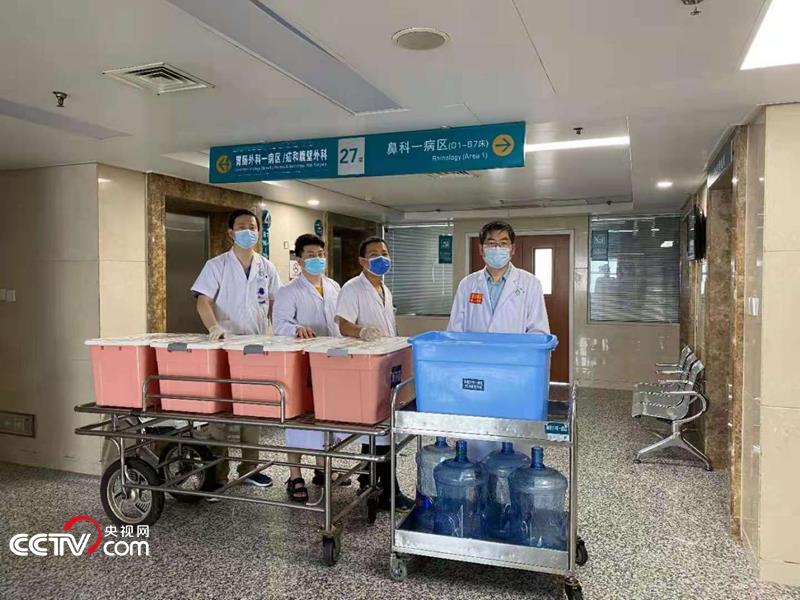
On July 24th, Dong Xinhua (second from right) and his colleagues cleaned the ward to prepare for the follow-up visit. Photo courtesy of respondents
I feel very worthless. A big man cries all day. People are too small in the face of natural disasters. You will never feel that kind of despair without experiencing it. But our country is really strong, the rescue speed is very fast, and there are donations from all walks of life, which really saved lives at that time.
I’m a short-tempered person and I’m outspoken, but after this disaster, I feel more and more that it’s not easy for everyone and every industry. Firefighters who support the post-disaster reconstruction of our hospital can fall asleep immediately by relying on a place in the roar of such a big machine. They are too hard; There are also the cleaning elder sister and the security elder brother in our hospital, whose work is not as easy as ours. So two days ago, my wife complained that there was no water at home, so I told her to stop talking.
After the disaster, there will still be many operations in our department. I must pay more attention to the attitude of talking to patients. I believe I will do better after this incident.
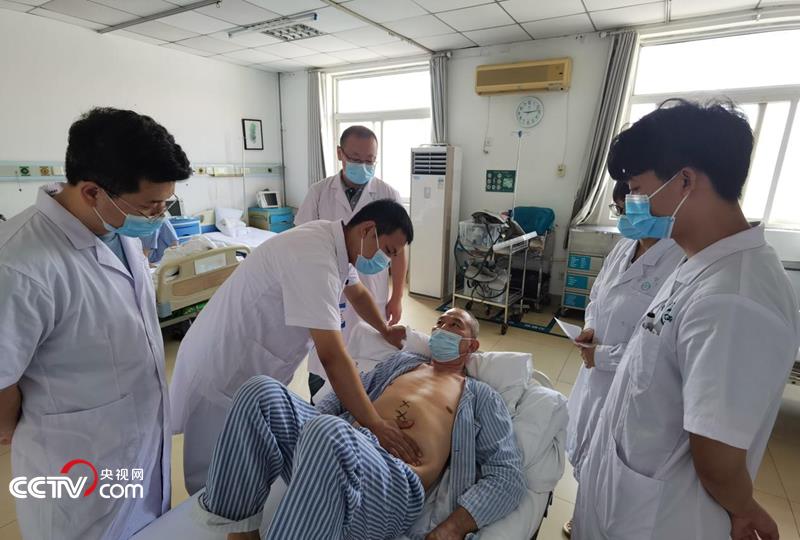
Dong Xinhua (second from left) is making rounds with his colleagues.
A few days ago, in an interview with the media, I was asked what my original intention was to be a doctor. I was a child from a poor family, and my parents were farmers. At that time, the idea of studying medicine was very simple, thinking that it was a technical job. I could eat and starve myself if I mastered this technology. But with my contact with clinic, internship, postgraduate entrance examination, work, and then my own operation, I think the existence of our special group is still very meaningful.
The flood river hospital area was badly damaged. After all the patients were transferred on the 22nd, the old hospital area, which was built in 1993, was closed for the first time in peacetime due to natural disasters. It’s sad to see the lights go out in the hospital all year round. This is my root and my home, and I don’t want it to have an accident.
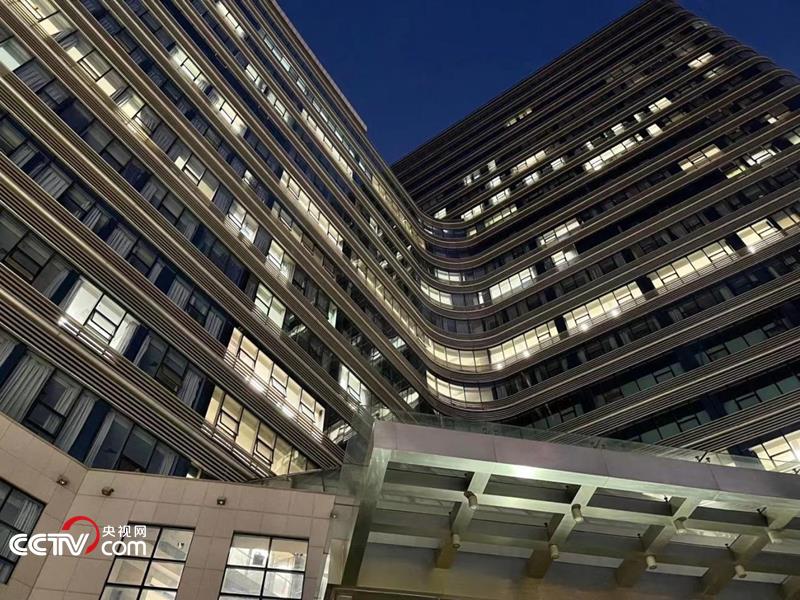
On July 24, the river hospital area of Zhengda First Affiliated Hospital was repaired all night.
In recent days, my colleagues and I have been running back and forth in the three campuses. Every morning, we go to Huiji and Zhengdong Campus for rounds, and then we go to the old campus for cleaning and disinfection. We are actively saving ourselves and looking forward to the lights going out in the old campus being turned on as soon as possible.